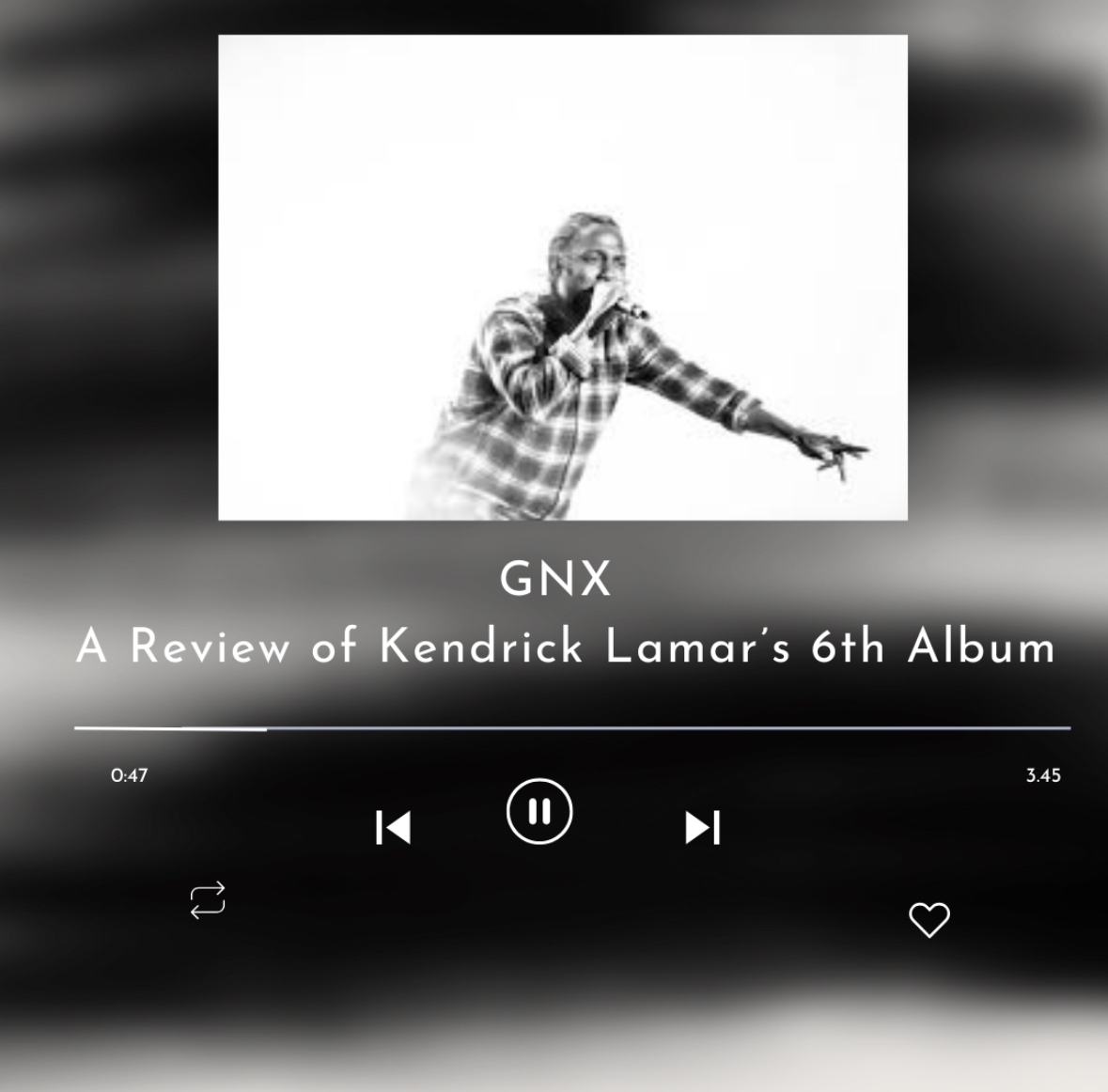Coming out of Pittsburgh in the early 2010s, Mac Miller was one of few artists of his generation to embrace the more experimental side of hip hop. After receiving critical acclaim from his first two mixtapes, “K.I.D.S.” and “Best Day Ever,” Miller went on to consistently release albums of high quality, with projects such as “GOOD AM” and “Watching Movies with the Sound Off.” Sadly, shortly after releasing his sixth studio album in 2018, “Swimming,” Miller passed away due to a drug overdose.
After his passing, with the help of producers like Madlib, Thundercat, and The Alchemist, Miller’s estate was able to release his seventh studio album, “Circles,” in 2020. The project was praised by both fans and critics alike for not only its quality, but also for the way the album’s release was handled by the Miller estate. This was because the album was not made with unfinished drafts of tracks like many other posthumous releases, rather, “Circles” was a project nearly finished by Miller himself before his passing.
In 2022, the 2014-produced mixtape, “Faces,” was put on streaming by the Miller estate with some touched-up production. The mixtape ended up being one of Mac’s more spiritual and introspective releases. Throughout the project, Miller talks about topics like depression and addiction.
Similarly to “Faces” in 2015, Mac Miller was set to release another mixtape titled “Balloonerism.” The project was supposed to touch on similar themes as “Faces,” but it wasn’t released until January 17, 2025.
“Balloonerism” opens with the track “Tambourine Dream.” The song is pure instrumental of a tambourine. The song’s vibe feels as though Miller is entering a trance and a high.
The second song, “DJ’s Chord Organ,” opens with some vintage synth lines that give the song a dark ambiance. Immediately after the instrumental, SZA comes in with one of her more original alternative R&B sounds. Throughout the song, SZA sings about driving across the country; “You aint even stop for gas.” Her lyrics, “I know you miss your lifetime,” bring up the album’s overall theme of escapism as she is reflecting on how Miller would experience freedom and excitement only in the night.
Up next is the track, “Do You Have A Destination?”, where Mac spends majority of the song speaking on the aspects of fame that someone of his stature is supposed to enjoy; “Supermodel b*****s hold auditions in my swimming pool.” However, once Mac gets to the song’s hook, he takes a turn into being more reflective on the lifestyle he lived, saying, “Okay, I went to sleep famous and I woke up invisible.” Throughout the second half of the song, Miller looks back on how empty his former lifestyle was. The title of the track, “Do You Have A Destination?” portrays the message of how, at the time, Mac didn’t know where he was going, living the lifestyle he had as if the world around him felt meaningless.
The fourth track, “5 Dollar Pony Rides,” is similar to the previous song, as they are both reflections on parts of Miller’s past. In this song, Miller looks back on a field trip he took when he was much younger. The song’s livelier production, coupled with Miller’s story of finding adolescent joy with others, come together to create a song that feels nostalgic to those who may never have experienced any event like what Miller depicts. The core message of the song ties back to the album’s theme of escapism, as Miller and this girl go off exploring on their field trip, leaving all their cares behind and just enjoying the five-dollar pony rides.
The next track, “Friendly Hallucinations,” marks one of the album’s most dark and psychedelic moments. Throughout the song, Miller continuously compares the love of a woman to a hallucinogen with lyrics like “It’s only real if it’s real to you.” The track continues with Miller elaborating on how he lacks any real intimacy within his life and that a lot of the relationships he has are meaningless. He expresses this by saying, “Tell me, is it real if you can’t hold it in your arms, but it can touch you? Feel its texture pressin’ up against your chest, you say ‘I love you’ (You don’t hear it back).”
Right after comes “Mrs. Deborah Downer,” where the title serves as a clear reference to Miller’s drug use and his depression. The track focuses on how Miller’s lifestyle only inhibited his harmful habits. “The devil always be right where the money is.” Many lyrics throughout the song show how at the time, Miller was dependent on his next high to get him through the day; “If pills can turn to powder, then this world could turn to ash.” Aside from the themes of drug use, the title, “Mrs. Deborah Downer,” also references his depression and anxiety. “Whatcha’ gonna do when the money comin’ slow.” The messaging on this track is some of the darkest on the album, revealing Miller’s mental state.
The seventh track, “Stoned,” oppositely, is a much lighter track in tone. Throughout the song, Miller tells the story of hanging out with a woman and seeking an escape with her, once again touching on the album’s theme of escapism. Because both Miller and this girl don’t have anywhere they can physically leave for, Miller suggests they get high to try and find a semblance of enjoyment in their time together; “Baby, let’s get stoned, put on a record, can I play you one more song?”
Up next is the eighth song, “Shangri-La,” delves deeper into Mac’s wish for a different life. “The weather’s nice today, what a perfect day to die.” The song’s minimalist and laid-back production creates an atmosphere that showcases how mentally gone Miller was at this time in his life. Throughout the song, Mac’s delivery is soft and reserved, adding to the album’s theme of escapism.
The following track, “Funny Papers,” puts a mirror of Miller’s psyche, showing his perspective on his life. The song opens up with a smooth piano melody and vocals of Miller’s contemplating how to dance; “Nobody ever taught you how to dance?” Which shows Miller’s personal view on how he hasn’t gotten to experience much actual fun or happiness in his adult life, as he keeps looking back to his childhood. The lyrics throughout the song paint a picture of how the passing of time changes more about you than age, and how sometimes nostalgia is the only fondness to be had.
Track number ten is “Excelsior,” which is one of the most tranquil and introspective songs off the album. “Excelsior” perfectly encapsulates the nostalgic side of the record with lines referring to Miller’s childhood like “Your only enemies were (want some Brussels sprouts and spinach?)” and “Me, I used to want to be a wizard, when did life get so serious?” These lyrics combined with the song’s minimalist production make for a track that feels new but also evokes a deep sense of longing for the past and wanting to escape back into your old fantasy world.
One of the odder tracks on “Balloonerism” is “Transformations,” which has a feature credit given to Miller’s alter ego, Delusional Thomas. However, once you understand that fact, the track starts to make more sense, as Delusional Thomas represents the more negative side of Miller that comes out when he’s high. “I’m a psychopathic thinker, hyperactive drinker.” Overall, the track stands out in the album as a point of contrast between the lovable yet broken Mac Miller, and the persona he uses when he’s on his worst behavior.
The following track, “Manakins,” offers some of the more unique productions in the album due to a distinctive trill. The song returns to Miller’s perspective where he’s no longer looking at the past but wallowing in his present; “My good days are exactly like the bad ones.” The song also features a hook from Dylan Renyolds, who exemplifies Miller’s acceptance of death during his parts of the song.
The penultimate track is “Rick’s Piano,” which features uncredited vocals from Josh Berg, adding a unique layer to the track by showing an outside perspective of Miller, showing how all his self-doubt comes from himself and that he really is the only person that hates himself. The track also features some of the most somber productions of the album. Throughout the track, Miller does seem to open up to the hopeful side of life after listening to Berg; “The best is yet to come.”
The final track of “Balloonerism” is “Tomorrow Will Never Know,” which may be the most somber and depressing song of Miller’s career. The track is nearly 12 minutes long. The song delves into all the existential themes that the album has touched on. Throughout the track, Miller has come to the conclusion that he can’t escape the depressing life he’s built for himself; “See, living and dying are one and the same.” He gives up on trying to dig his way out of addiction and depression, as well as attempting to forget all the good from his past that he’s been trying to rekindle throughout the album. The track features a ringing telephone at the end which symbolizes Miller’s unfulfilled connections that he’s been searching for throughout the album. By the end of the song, Miller decides to just go on living a life he doesn’t even want to live, a haunting reminder of the way he passed in 2018.
Overall, it is a miracle that “Balloonerism” was released to the public. Not just because of the work that was needed to finish it, but also because this album is one of Miller’s greatest. By all rights, he deserved to live to see the success of the project and share it with the world. Though “Balloonerism” is, without a doubt, the darkest project in Miller’s discography, it also shines as his most captivating and emotional, and it serves as a wonderfully bittersweet send off to Malcolm.









Anonymous • Sep 18, 2025 at 8:52 pm
I miss writing for you guys lowk